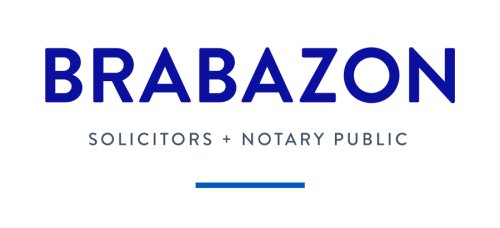Best Will & Testament Lawyers in Dublin
Share your needs with us, get contacted by law firms.
Free. Takes 2 min.
List of the best lawyers in Dublin, Ireland
About Will & Testament Law in Dublin, Ireland
Will & Testament law in Dublin, Ireland is governed by a set of legal rules and regulations that determine how a person's assets are distributed upon their death. A will is a legal document that expresses the intentions of the deceased regarding the distribution of their estate. This law ensures that the wishes of the deceased are honored, and it protects the rights and interests of beneficiaries. Having a properly drafted will is crucial to ensure a smooth probate process and to avoid disputes among heirs.
Why You May Need a Lawyer
There are several situations in which you may require legal assistance in the area of Will & Testament:
- Complex Estates: If your estate includes multiple assets, businesses, or investments, a lawyer can help you draft a comprehensive will that addresses all your wishes.
- Family Dynamics: If you anticipate disputes among your heirs or have complicated family situations, legal advice can help mitigate conflict and ensure clarity in your will.
- Legal Compliance: To ensure that your will complies with Irish laws and is legally valid, it is advisable to consult a lawyer.
- Tax Planning: Professionals can provide guidance on minimizing taxes on your estate, ensuring that more of your assets go to your beneficiaries.
- Updating Wills: If there are significant changes in your life, such as marriage, divorce, or the birth of a child, you will need legal help to update your will accordingly.
Local Laws Overview
Here are some key aspects of local laws relevant to the field of Will & Testament in Dublin, Ireland:
- Age Requirement: A person must be at least 18 years old to make a legally binding will in Ireland.
- Testamentary Capacity: The person creating the will must have the mental capacity to understand the nature and effect of their actions.
- Witness Requirements: A will must be in writing and signed by the testator in the presence of two witnesses, who also sign the document.
- Revocation: A will can be revoked by a subsequent will or by destruction of the document with the intent of revocation.
- Spousal and Child Rights: Under Irish law, spouses and children have certain entitlements that the testator cannot completely disinherit without potentially facing legal challenges.
- Intestacy: If a person dies without a will (intestate), their estate is distributed according to the rules of intestacy, where the law determines the beneficiaries.
Frequently Asked Questions
What happens if I die without a will?
If you die without a will, your estate will be distributed according to the rules of intestacy, which may not align with your wishes.
Can I write my own will?
While you can write your own will, it is advisable to have it drafted or reviewed by a legal professional to ensure it is valid and covers all necessary aspects.
Can I change my will after I have made it?
Yes, you can change your will at any time by making a new will or adding a codicil to your existing will.
What are the common mistakes people make with wills?
Common mistakes include not signing the will correctly, not naming guardians for minor children, and not updating the will after major life changes.
How do I ensure my will is legally valid?
To ensure your will is legally valid, it must be in writing, signed by you in the presence of two witnesses who also sign the document, and you must have the mental capacity to make the will.
Who can be a witness to my will?
An independent person who is not a beneficiary or the spouse of a beneficiary in your will can act as a witness.
What is the role of an executor?
An executor is responsible for administering your estate according to your will, paying debts and taxes, and distributing assets to beneficiaries.
Can a beneficiary be an executor?
Yes, a beneficiary can also serve as an executor of the will.
How is a will probated in Dublin, Ireland?
The probate process involves proving the validity of the will, appointing an executor, and managing the estate according to the deceased's wishes.
Do I need a lawyer to execute a will?
While it is not legally required, having a lawyer can be beneficial in simplifying the probate process and handling complex legal matters.
Additional Resources
Here are some resources that could be helpful if you are seeking legal advice in Will & Testament:
- The Courts Service of Ireland
- The Law Society of Ireland
- Citizens Information Ireland
- Irish Probate Office
Next Steps
If you need legal assistance with Will & Testament in Dublin, Ireland, consider these steps:
- Identify your specific needs and any complexities in your estate.
- Research and contact a reputable solicitor who specializes in Wills & Probate law.
- Prepare necessary documents and information before your consultation.
- Discuss your wishes clearly with your solicitor to ensure all aspects are covered.
- Regularly update your will, especially after significant life events.
Lawzana helps you find the best lawyers and law firms in Dublin through a curated and pre-screened list of qualified legal professionals. Our platform offers rankings and detailed profiles of attorneys and law firms, allowing you to compare based on practice areas, including Will & Testament, experience, and client feedback.
Each profile includes a description of the firm's areas of practice, client reviews, team members and partners, year of establishment, spoken languages, office locations, contact information, social media presence, and any published articles or resources. Most firms on our platform speak English and are experienced in both local and international legal matters.
Get a quote from top-rated law firms in Dublin, Ireland — quickly, securely, and without unnecessary hassle.
Disclaimer:
The information provided on this page is for general informational purposes only and does not constitute legal advice. While we strive to ensure the accuracy and relevance of the content, legal information may change over time, and interpretations of the law can vary. You should always consult with a qualified legal professional for advice specific to your situation.
We disclaim all liability for actions taken or not taken based on the content of this page. If you believe any information is incorrect or outdated, please contact us, and we will review and update it where appropriate.














